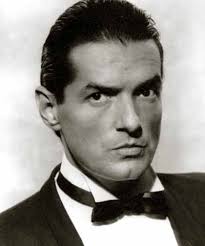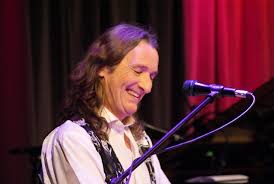20 Rush Albums in 20 Days: Presto
 DAY TWO: Rush, Presto, running time 52:16, released November 21, 1989
DAY TWO: Rush, Presto, running time 52:16, released November 21, 1989
I’ll never forget the first time my roommates and I heard the new Rush song “Show, Don’t Tell” in fall of 1989. After the brief drum and synth intro, suddenly there it was: the return of Alex Lifeson. Rush was back.
The change from Hold Your Fire to Presto is enormous, mostly in terms of production. Geddy’s penchant for memorable melodies is still in full-force and Neil’s lyrics are relatable and clever, but whereas keyboards were clearly a writing tool for their previous album, on Presto, aided by newly introduced Rupert Hine’s production, keyboards are used to color the sound and not as a lead instrument (except on “Red Tide” and “Available Light.”). Hearing it with fresh ears, the album still holds up very well. Unlike its predecessor, Presto doesn’t sound like a somewhat unfortunate 80s relic.
I recall being unhappy with the chorus of the title track back in 1989, thinking the song’s verse’s had been so perfect that the lift required to take the song to the next level was regretfully absent. With older ears, I no longer consider the chorus a letdown, but rather a terrific example of how music can effectively reflect a song’s lyrics. As with all of Rush’s releases since 1987, the album suffers a bit from being overlong. Listening to it front to back, I think that the album could end happily with Neil’s terrific lyrical contribution “Anagram (for Mongo),” perhaps tacking on “Available Light” for a poignant conclusion. But “Red Tide” and “Hand Over Fist” wear thin.
Presto has been perplexingly unrepresented on Rush’s tours (though perhaps less so after reading Neil Peart’s comments about Rush’s unhappiness with the effort). Even the 1990 tour only included five songs from the album (compare that with the Snakes and Arrows and Clockwork Angels tours when Rush performed nearly the entire albums), and since the Counterparts tour only “The Pass” and “Presto” have squeezed into the setlist. I recall seeing the tour at Alpine Valley, WI, and the only song from the album that really bombed was “Scars.” This is an acceptable album track, but one that should have ever been played live with its multiple pre-recorded tracks.
Back to Neil Peart’s comments, he’s reported to have said that if Rush could redo one album, Presto would be it, as they feel it should have been much better given the material they had to work with. I’m not sure what they would do differently. It’s still early in the listening of twenty albums in twenty days, but I expect Presto to be ranked highly in my final tally.
Tomorrow, I’ll be listening to…drum roll, please…number 8. Well, here it is. Considered by many to be Rush’s magnum opus. Moving Pictures. We’ll see if it still holds up.



